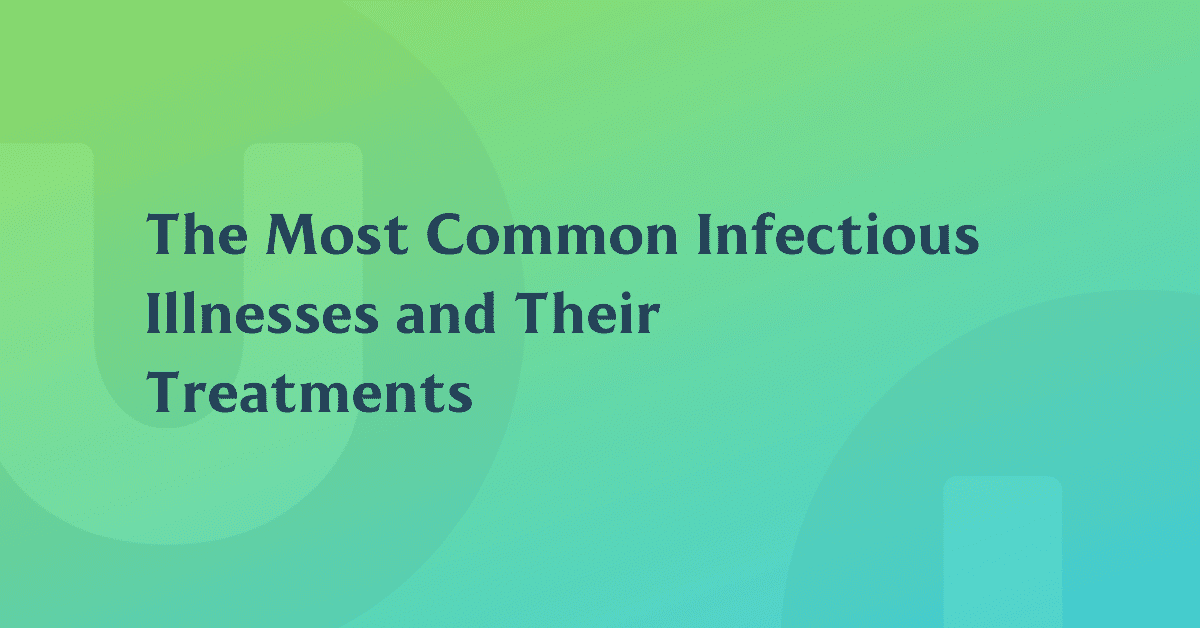Infectious diseases are conditions caused by organisms like bacteria, viruses, parasites, or fungi. Our bodies have many microorganisms living in them, most being harmless or helpful. Unfortunately, under some conditions, some organisms can cause illnesses.
Sometimes infectious diseases are passed from person to person. For example, some conditions are transmitted by insects or animals. You can also get contagious diseases by consuming contaminated food or water or via exposure to environmental organisms.
The signs and symptoms of the illnesses vary according to the organism causing the infection. Fever and fatigue are often associated with the diseases. Mild conditions usually respond to rest and home remedies. Unfortunately, life-threatening actions include hospitalization.
Many infections like chickenpox and measles are preventable by vaccines. Therefore if you suspect you have an infectious disease, the better option is to visit urgent care near me for attention instead of delaying the care you need.
Which Are the Most Common Infectious Illnesses?
The list of infectious illnesses is exhaustive and contains various conditions. Some of them are chickenpox, common cold, diphtheria, influenza, Lyme disease, malaria, meningitis, pneumonia, et cetera. However, the list is not limited to these illnesses alone and even includes tuberculosis, shingles, and STDs.
It must be noted that most infectious illnesses have similar symptoms like fever, diarrhea, fatigue, and muscle aches. However, the diseases can also have specific symptoms and are treated differently by urgent care near me depending on their severity and how they affect your immune system.
While you tend to symptoms of a cold initially, you must seek treatment from the urgent care clinic if the symptoms last longer than a few days. You can also prevent infectious illnesses by getting vaccinations in a timely manner.
Causes of Infectious Illnesses
Infectious illnesses are caused by bacteria, viruses, fungi, and parasites. Bacteria are one-cell organisms responsible for infections like strep throat, urinary tract infection, and tuberculosis. Viruses are tinier than bacteria but can cause multiple diseases, from the common cold to HIV AIDS.
Many skin conditions like ringworm and athlete’s foot are caused by fungi. Some types of fungi can also infect your lungs and nervous system. A tiny parasite transmitted by mosquitoes causes malaria. You can also develop parasitical infections from animal feces.
A convenient way of developing infectious illnesses is by coming into contact with a person or animal with the infection. Contagious diseases spread through direct contact such as:
Person to Person: Direct transfer of bacteria, viruses, or germs from person to person contact is relatively standard. The connection can happen when an infected individual with the bacteria or virus kisses, sneezes, or coughs on someone who is not infected. The germs also spread through the exchange of bodily fluids from sexual contact. The person passing the germs might have no symptoms of the disease and maybe an asymptomatic carrier.
Animal to Person: If an infected animal bites or scratches your body, you can develop a sickness that can make it fatal in extraordinary circumstances. Handling animal waste is also hazardous.
Mother to Unborn Child: Pregnant women can pass some germs to cause infectious illnesses in the unborn baby. The germs pass through the breastmilk and the placenta. During birth, germs in the vagina can also be transmitted to the baby.
Treatment for Infectious Illnesses
The treatment for infectious illnesses is offered by urgent care in 77008 after lab work and imaging scans to determine the reason behind the symptoms. As many infectious diseases have similar symptoms, samples of body fluids can reveal evidence of a particular microbe causing the illness. The diagnosis helps the doctor at the facility you visit to tailor your treatment.
Determining the type of germs causing your illness makes it easier for urgent care in Houston to choose the appropriate treatment. For example, you might receive antibiotics, antivirals, antifungals, and anti-parasitics to deal with the specific illness affecting you.
If you suspect you are affected by an infectious illness, you help yourself by visiting a walk-in clinic to identify the causes of your sickness and receiving appropriate treatment for the condition from the facility. Prepare yourself to answer several questions from the doctor at the clinic, trying to determine the causes for your symptoms and the most appropriate treatment to provide. However, do not ignore infectious illnesses because many can assume life-threatening proportions.
NeuMed Modern Urgent Care provides treatment for infectious illnesses in Houston without making you wait in a queue. Please schedule an appointment with them if you suspect you are ill from an infectious disease.









